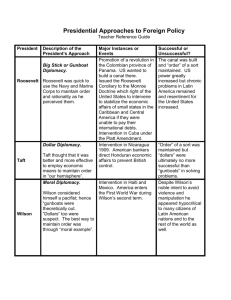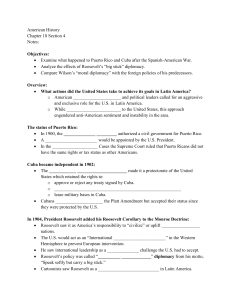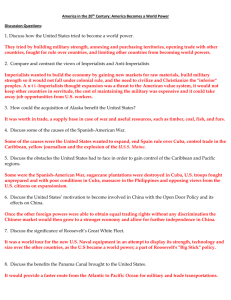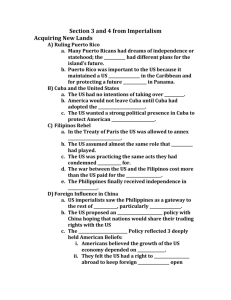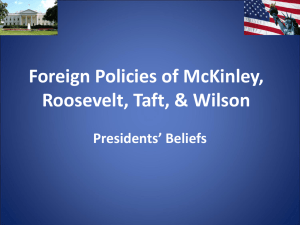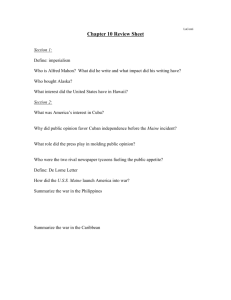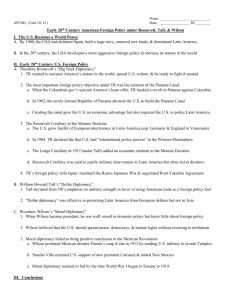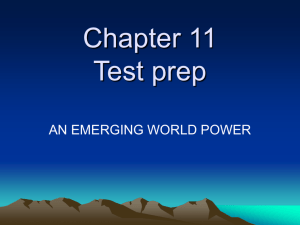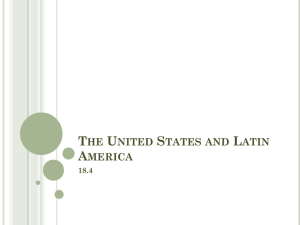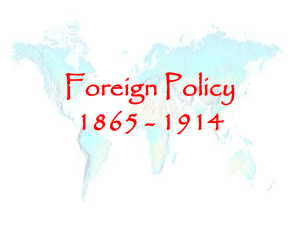18.4 The United States And Latin America After the Spanish
advertisement
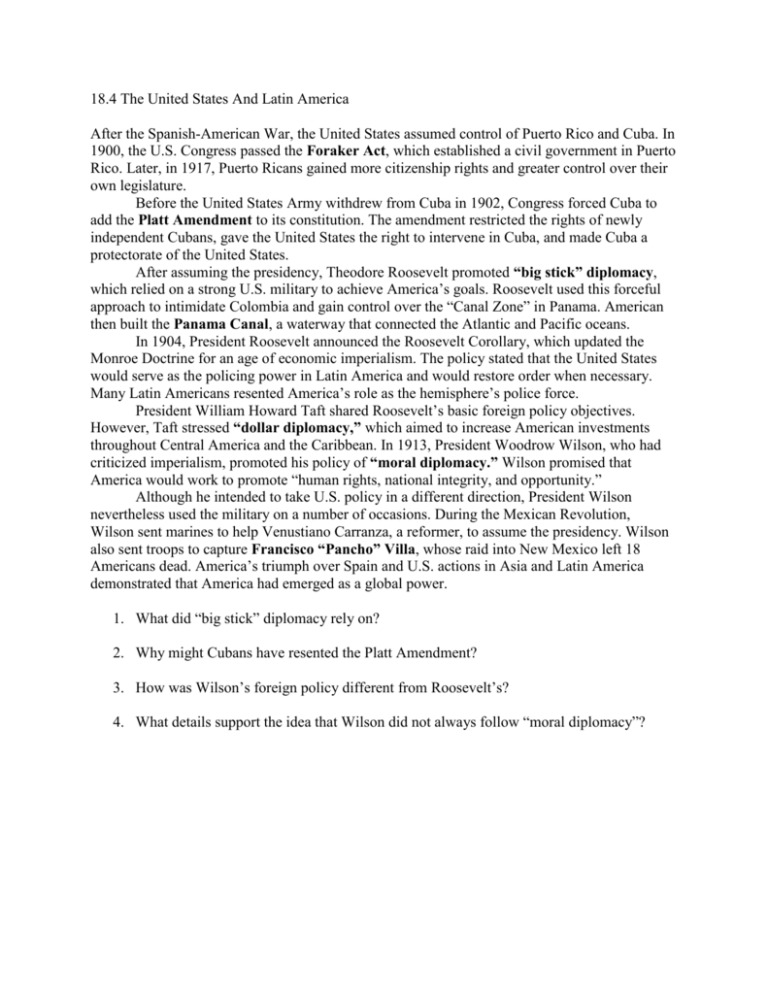
18.4 The United States And Latin America After the Spanish-American War, the United States assumed control of Puerto Rico and Cuba. In 1900, the U.S. Congress passed the Foraker Act, which established a civil government in Puerto Rico. Later, in 1917, Puerto Ricans gained more citizenship rights and greater control over their own legislature. Before the United States Army withdrew from Cuba in 1902, Congress forced Cuba to add the Platt Amendment to its constitution. The amendment restricted the rights of newly independent Cubans, gave the United States the right to intervene in Cuba, and made Cuba a protectorate of the United States. After assuming the presidency, Theodore Roosevelt promoted “big stick” diplomacy, which relied on a strong U.S. military to achieve America’s goals. Roosevelt used this forceful approach to intimidate Colombia and gain control over the “Canal Zone” in Panama. American then built the Panama Canal, a waterway that connected the Atlantic and Pacific oceans. In 1904, President Roosevelt announced the Roosevelt Corollary, which updated the Monroe Doctrine for an age of economic imperialism. The policy stated that the United States would serve as the policing power in Latin America and would restore order when necessary. Many Latin Americans resented America’s role as the hemisphere’s police force. President William Howard Taft shared Roosevelt’s basic foreign policy objectives. However, Taft stressed “dollar diplomacy,” which aimed to increase American investments throughout Central America and the Caribbean. In 1913, President Woodrow Wilson, who had criticized imperialism, promoted his policy of “moral diplomacy.” Wilson promised that America would work to promote “human rights, national integrity, and opportunity.” Although he intended to take U.S. policy in a different direction, President Wilson nevertheless used the military on a number of occasions. During the Mexican Revolution, Wilson sent marines to help Venustiano Carranza, a reformer, to assume the presidency. Wilson also sent troops to capture Francisco “Pancho” Villa, whose raid into New Mexico left 18 Americans dead. America’s triumph over Spain and U.S. actions in Asia and Latin America demonstrated that America had emerged as a global power. 1. What did “big stick” diplomacy rely on? 2. Why might Cubans have resented the Platt Amendment? 3. How was Wilson’s foreign policy different from Roosevelt’s? 4. What details support the idea that Wilson did not always follow “moral diplomacy”?
